
Latest articles

Financing Long-Term Innovation: A Strategic Lever for Research at Berger-Levrault
A Strong Commitment to Innovation As a leading industrial company in the field of software and digital services for local authorities and public-sector stakeholders, Berger-Levrault places innovation at the heart of its development strategy. In a context of accelerated digital transformation, anticipating future uses, exploring new technologies, and preparing tomorrow’s solutions have become key challenges for competitiveness and technological sovereignty. To address these challenges, Berger-Levrault has, for several years, relied
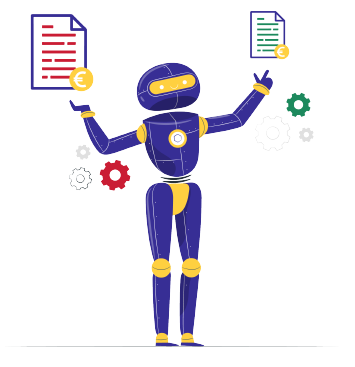
🇫🇷 Detection d’erreurs par Intelligence Artificielle dans les fiches de paie
Démonstration: L’Intelligence Artificielle au service de la Paie Le module présenté dans cette démonstration permet de détecter des anomalies liées aux fiches de paie et cela grâce à un modèle d’apprentissage automatique (Machine Learning).Un échantillon d’une base existante peut être chargé par défaut. La possibilité de charger une nouvelle base depuis un fichier CSV est
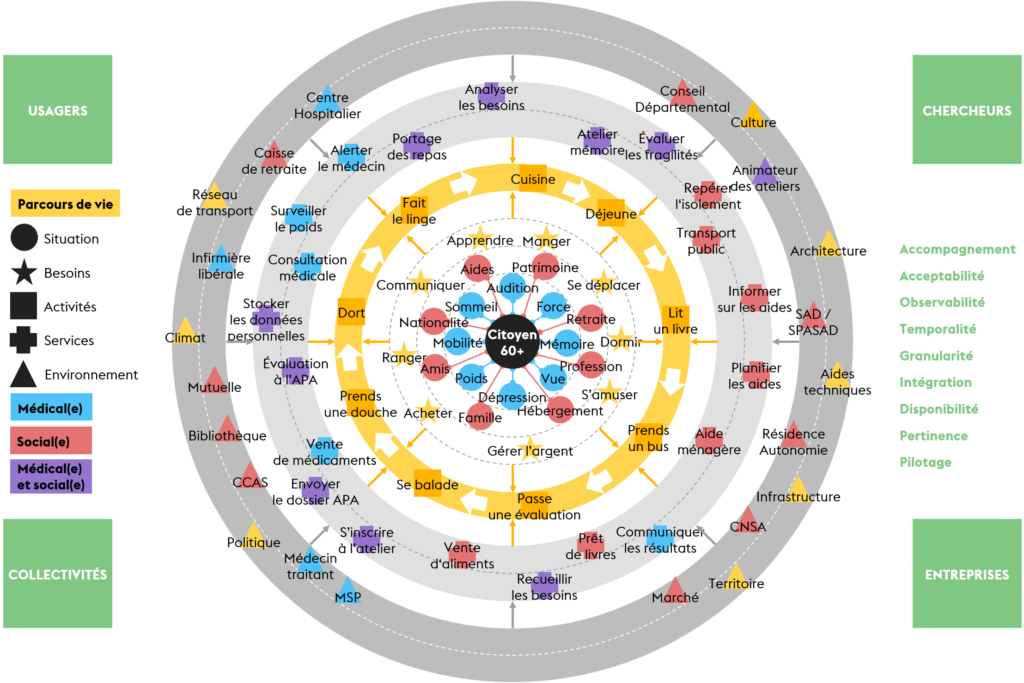
BL.SenseLife: Healthy Ageing Co-Design and Management Platform
Healthy ageing is “the process of developing and maintaining the functional ability that enables well-being in older age” (WHO, 2015). Frailty is a clinical and a social syndrome relative to ageing. In medical context, frailty characterizes an intermediate state between robust health and the loss of autonomy. It points the beginning of the decline in

The legal impact of digitalisation of administration on public services
The digital transformation does not only concern the private sector, even though it’s frequently described as more innovative. From computerisation of public administration in the 60’ to the latest applications of artificial intelligence by territorial authorities, public action seems more and more digitalised (and still “in digitalisation”). Therefore, this public action in practice resulting in
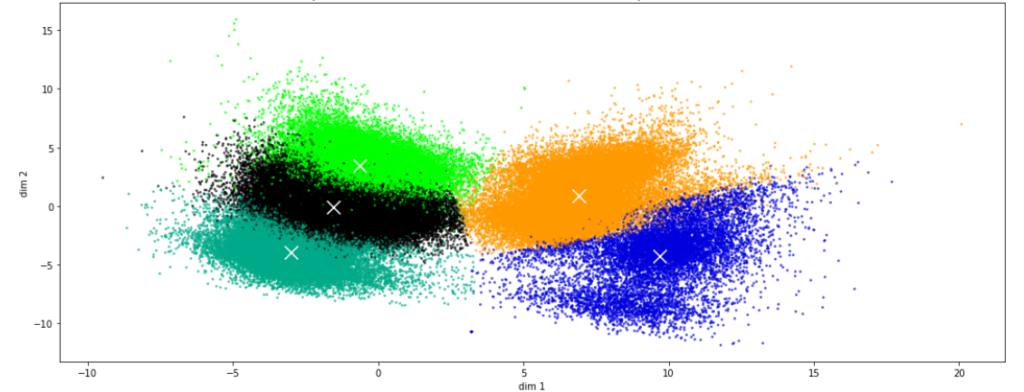
🇫🇷 L’IA au service des collectivités locales
https://www.research-bl.com/wp-content/uploads/2019/08/frigg-1-online-video-cutter.com_.mp4 En France, les collectivités se différencient selon plusieurs caractéristiques telles que les budgets qu’elles utilisent au cours d’une année, les investissements qu’elles opèrent et enfin les dettes qu’elles contractent. Le but étant d’apporter une aide aux collectivités locales en développant un modèle capable d’apporter une aide à la prise de décision en leur permettant
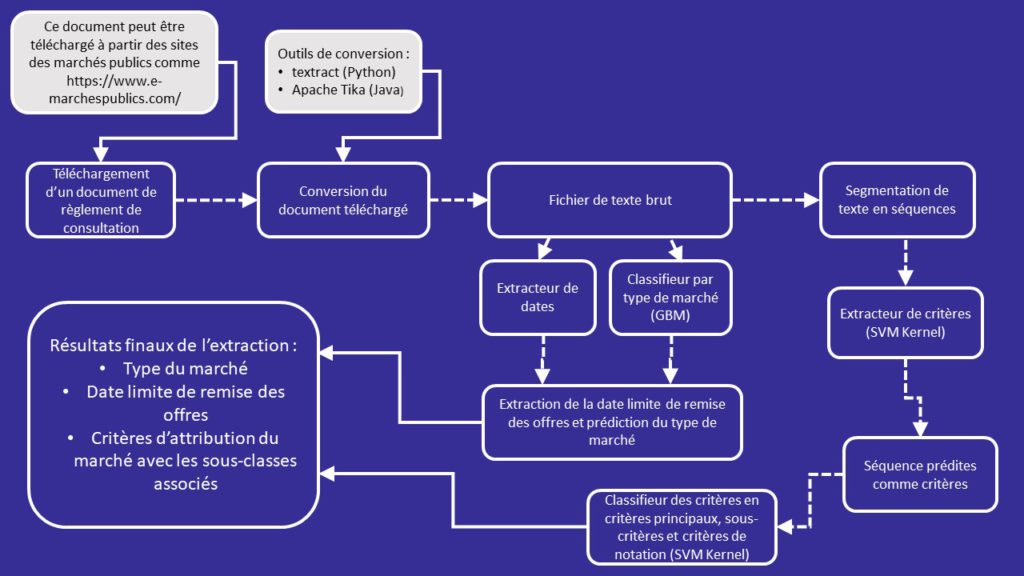
🇫🇷 Hermès Démo
CONTEXTE Les documents des marchés publics manifestent une hétérogénéité importante et des similarités trompeuses. Autrement dit, ces documents contiennent généralement des informations typiques comme le nom de l’organisme public, son code SIRET, sa géolocalisation, des dates, les critères et les modalités de choix des candidats, etc. Toutefois, ces informations sont généralement présentées sans aucun format
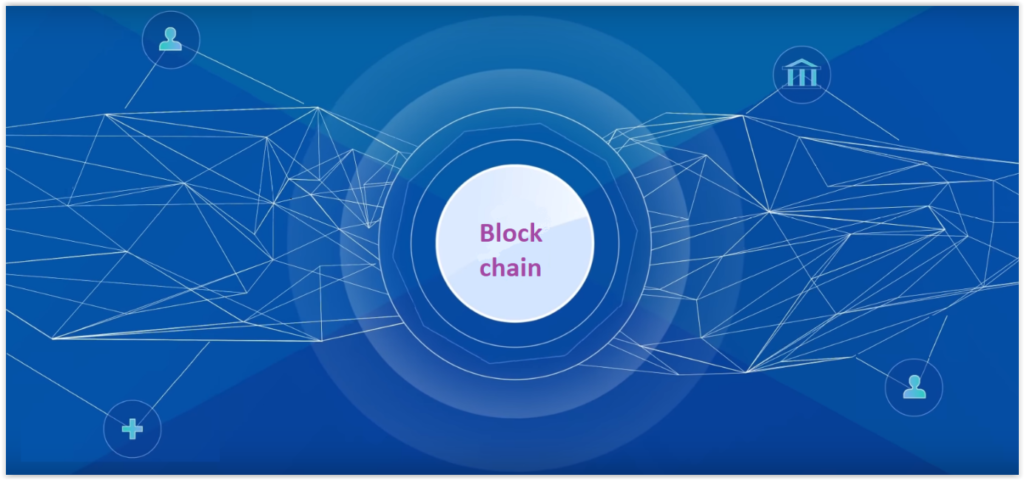
Blockchain for interoperability
Interoperability is the possibility for different systems to communicate with each other without depending on a particular actor. It is based on the use of an open standard Context The sharing of data between information systems (IS) becomes essential to ensure communication between these IS. This exchange has consequences of compatibility (because of heterogeneous data

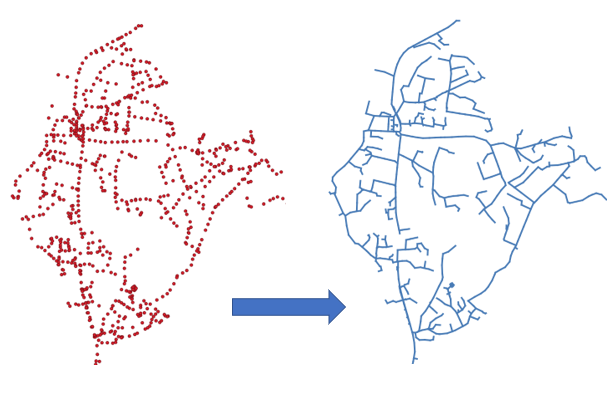
Automatic Reconstruction of Sanitation Network
Underground networks are a direct consequence of urbanization. These networks are daily used to offer all the vital services : electricity, Internet, water, etc. However, the available data related to them in particular sanitation ones are various, and come in different types (texts, images, GIS etc.) and formats (analog, digital). In addition, these multisource/multi-format data are
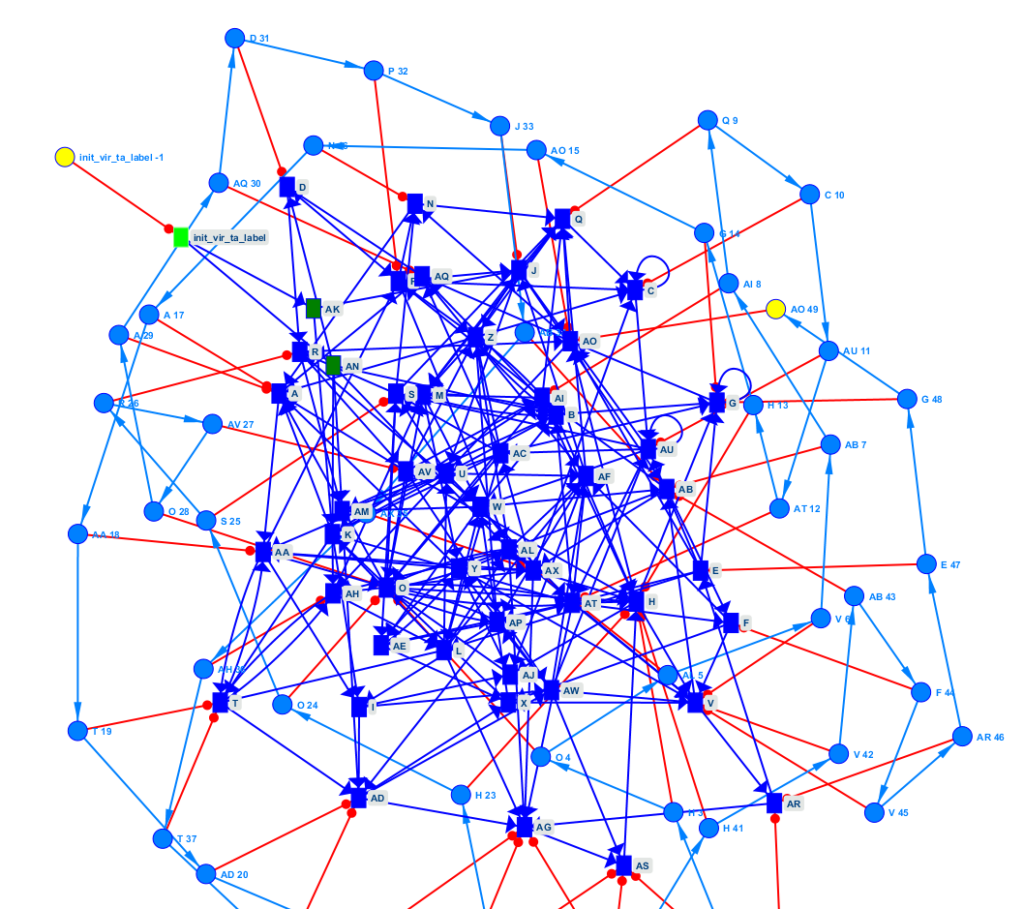
Analysis of user activity (traces) in software
The software for public services are always more complex as the regulation evolves constantly and the user requirement continues to refine. Thus, the quality of the software declines, making it more difficult to maintain and use. For example, some anomalies occurring in the production environment cannot be reproduced and therefore cannot be resolved. From the
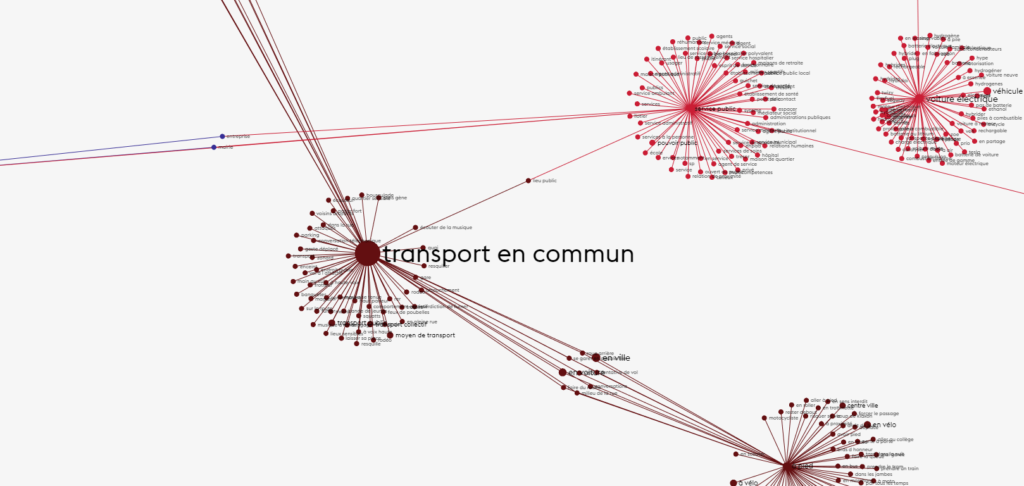
🇫🇷 Une analyse automatique du language du “Grand Debat National”
PREAMBULE Cette page propose des résultats d’analyse du corpus du Grand Débat National réalisé au sein de la DRI à Berger-Levrault. L’objectif de cette page est d’illustrer des analyses possibles sur ce type de corpus textuel. Nous nous sommes efforcés d’etre le plus transparent possible dans les techniques effectuées. ACCUEIL Le grand débat est d’intérêt
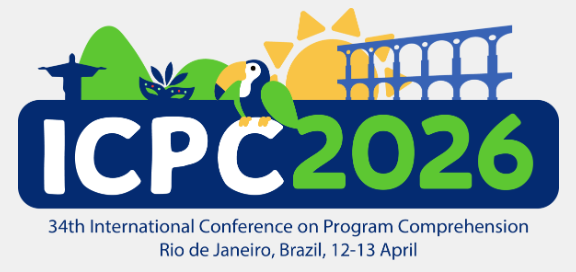
ICPC – 34th International Conference on Program Comprehension (Rio de Janeiro – Brazil)

Forum for advances in visualization and visual analytics – VIS 2025 (Vienna – Austria)

IFIP/SOCOLNET – Hybrid Human-AI Collaborative Networks (Porto – Portugal)


Camille Dupré Ph.D. thesis defense: “Pad-based Interaction in Mixed Reality environments”
Thursday 18th December at 2p.m. Paris time, Camille Dupré, Ph.D. Candidate has defended her thesis named “Pad-based Interaction in Mixed Reality environments”. Her thesis defense took place at the LISN, in Gif-sur-Yvette (660 Av. des Sciences Bâtiment, 91190), France. Take a look at the summary below. Summary Mixed Reality (MR) environments integrate virtual elements into
Nihed Bendahman Ph.D. thesis defense: “Evaluation and mitigation of hallucinations in automatic summarization in the specific context of legal documents”
Monday 15th December at 2p.m. Paris time, Nihed Bendahman, Ph.D. Candidate has defended her thesis named “Evaluation and mitigation of hallucinations in automatic summarization in the specific context of legal documents”. Her thesis defense took place at the IRIT Research Laboratory, in Toulouse, France. Take a look at the summary below. Summary Legal monitoring is a
Gabriel Darbord Ph.D. thesis defense: “Automatic test generation to help modernize our applications”
Friday 5th December at 9a.m. Paris time, Gabriel Darbord, Ph.D. Candidate has defended his thesis named “Automatic test generation to help modernize our applications”. His thesis defense took place in Lille, France. Take a look at the summary below. This thesis is fully in line with the partnership between Berger-Levrault and Inria, which aims to
Berger-Levrault strengthens its ties with AI startups!
We are proud to announce that we have joined Hub France IA, the largest association dedicated to artificial intelligence in France. This network now brings together more than 250 members—companies, startups, research laboratories, and institutions—who share the same goal: to accelerate the development and adoption of AI in France and Europe. Getting closer to the
Celebrating New PhDs from the BL.Research Team!
At Berger-Levrault, research is more than a mission—it’s a shared adventure. As the new academic year begins, we are proud to celebrate the success of four of our colleagues from the BL.Research team, who have reached a major milestone in their scientific journeys: the defense of their doctoral theses. These achievements are the result of
Hamza Safri Ph.D. thesis defense: “Federated learning for the IoT : Application for Industry 4.0”
Thuesday 24th June at 3pm Paris time, Hamza Safri, Ph.D. Candidate has defended his thesis named “Federated learning for the IoT: Application for Industry 4.0”. His thesis defense took place at the Inria Minatec Grenoble, Grenoble, France. Take a look at the summary below. Keywords: Model generalization, predictive maintenance, industrial IoT, federated learning, edge network,
ESUG 2025: Six contributions and 2 prizes for the Software Engineering Lab team!
Congratulations to our PhDs Nicolas Hlad, Aless Hosry, Benoit Verhaeghe and Pascal Zaragoza from Berger-Levrault’s BL.Research team for their participation in the 2025 edition of the ESUG (European Smalltalk User Group) conference! This year’s conference took place from July 1-4 in Gdansk, Poland. The theme was innovation in Smalltalk technologies and their use in software
Julien Breton Ph.D. thesis defense: “Extraction and formalization of regulatory industrial maintenance knowledge from semi-structured corpus data”
Friday, 27th June at 1.30 pm Paris time, Julien Breton, Ph.D. Candidate has defended his thesis named “Extraction and formalization of regulatory industrial maintenance knowledge from semi-structured corpus data”. His thesis defense took place at the IRIT research laboratory, Toulouse, France. Take a look at the summary below. Keywords: Legal compliance,Industrial maintenance, Norm extraction,LLM (Large
